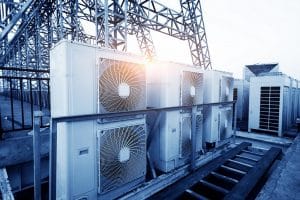 In many ways, it’s obvious how different heat exchangers are from more traditional air conditioning equipment. Not only do they look different, but the very methods they use to prevent electrical overheating vastly differ from each other, as well. By utilizing completely different thermal management methods, heat exchangers have resounding benefits that far exceed what air conditioners can provide. That includes impacting the overall costs of electrical thermal management, as well as the environmental footprint that companies must account for in regards to their technology.
In many ways, it’s obvious how different heat exchangers are from more traditional air conditioning equipment. Not only do they look different, but the very methods they use to prevent electrical overheating vastly differ from each other, as well. By utilizing completely different thermal management methods, heat exchangers have resounding benefits that far exceed what air conditioners can provide. That includes impacting the overall costs of electrical thermal management, as well as the environmental footprint that companies must account for in regards to their technology.
How they operate
Most of the differences between heat exchangers and air conditioners come from their varying thermal management principles. For air conditioners, the goal is to provide enough chilled air on a consistent basis to eliminate the waste heat that electrical components generate. For heat exchangers, however, the goal is to keep the heat moving away from those components before it can cause any damage. One method (air conditioning) is much more complex and cumbersome than the other (heat transfer), and the biggest differences between the two stem from this comparison.
How much they cost (long-term)
Chilling and circulating air requires several processes, each of which comes with a heavy reliance on energy and maintenance. For example, air conditioners have to chill the air using Freon and complicated machinery, then circulate that air continuously through various electrical enclosures. Freon must be replaced, machinery can break down easily, and the costs of running it all can quickly grow exorbitant. Because heat exchangers don’t rely on these processes or the chemicals and equipment needed to make them happen, they also don’t require as high of a cost to operate continuously.
How big their footprint is
Reduced energy needs and the elimination of substances like Freon help make heat exchangers one of the more eco-friendly thermal management solutions available. Companies that utilize them can also use their heat transfer abilities to supplement certain energy needs in other applications, such as wastewater treatment, to further lower their environmental impact. For more information about how heat exchangers actually differ from air conditioning, call Noren Thermal Solutions in Taylor, TX, at 866-936-6736.







